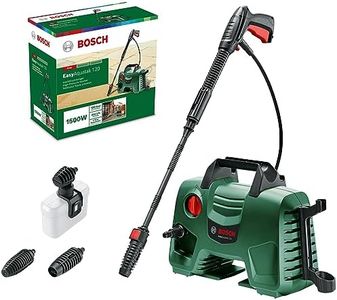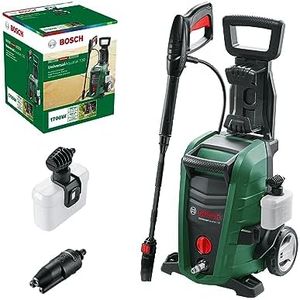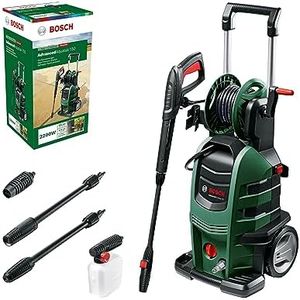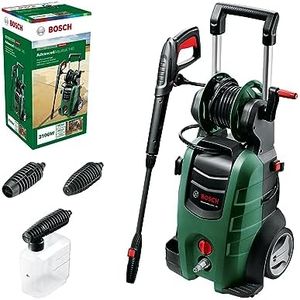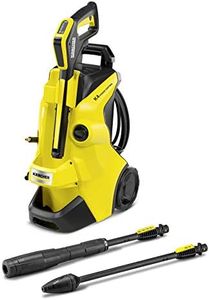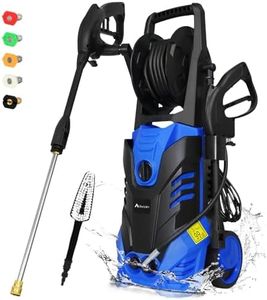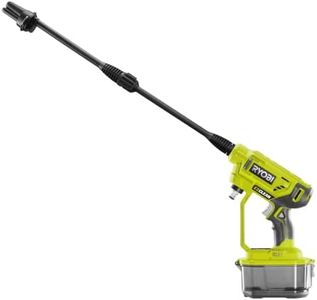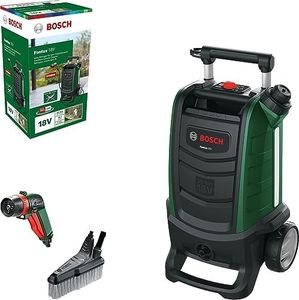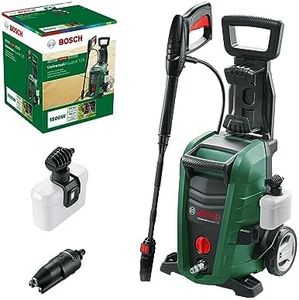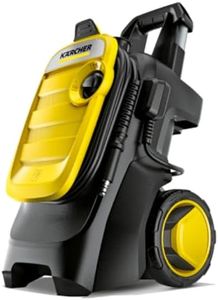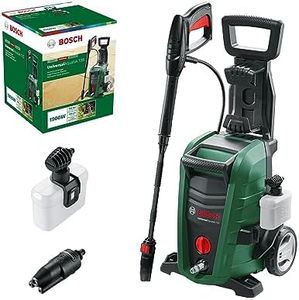We Use CookiesWe use cookies to enhance the security, performance,
functionality and for analytical and promotional activities. By continuing to browse this site you
are agreeing to our privacy policy
10 Best Quiet Pressure Washer
From leading brands and best sellers available on the web.By clicking on a link to a third party's website, log data is shared with that third party.
Buying Guide for the Best Quiet Pressure Washer
Choosing a quiet pressure washer means balancing cleaning power and noise levels. These machines use water jets for cleaning surfaces like patios, cars, or siding, but some are much quieter than others. Consider your environment: if you live in a neighborhood with noise restrictions or want to clean early in the morning, quieter models are a real benefit. Think about what you'll clean most often and how portable or convenient you need your washer to be.Noise Level (dB)The noise level tells you how loud the pressure washer is when running, typically measured in decibels (dB). For quiet operation, look for models that operate below 80 dB. Higher values can be quite loud and possibly disturbing, especially in residential areas. Lower-noise models are great for those sensitive to sound, living near others, or using the washer for extended periods. Generally, electric pressure washers are quieter than gas ones, so consider this if quietness is your top concern.
Pressure Output (PSI)PSI stands for pounds per square inch, and it measures how much force the washer uses to spray water. More PSI means more cleaning power, but not always more noise. Light-duty washers (1300–1800 PSI) are good for cars, patio furniture, and smaller tasks; medium-duty (1800–2500 PSI) works for decks and fences; heavy-duty (2500+ PSI) cleans driveways, large patios, or stubborn stains. Choose the lowest PSI that will handle your regular cleaning—less power can also mean quieter operation.
Water Flow Rate (GPM)Water flow is measured in gallons per minute (GPM) and describes how much water the washer puts out. Higher GPM units can clean faster and more efficiently, but they may also have larger motors or pumps that can be noisier. Light tasks can get by with as low as 1.2 GPM, while heavy-duty jobs may use up to 2.5 GPM. For most quiet-use cases, lower GPM paired with moderate PSI is sufficient and helps keep noise down.
Power SourcePressure washers come in electric and gas-powered versions. Electric models are almost always quieter than gas ones because they have fewer moving parts and smaller motors. For most home and light commercial use, electric is best if your goal is quiet operation, while gas-powered options are usually only needed for very large or rugged cleaning jobs but tend to be much louder.
Pump TypeThe pump is the heart of a pressure washer. Induction motors and triplex pumps are common in quieter, longer-lasting models, whereas universal motors and wobble pumps are found in cheaper but often noisier models. If you want a quiet washer for frequent use, look for one with an induction motor rather than a universal one, as these are specifically designed to reduce noise and last longer.
Size and PortabilitySize and weight affect how easy the washer is to move and store, but also sometimes relate to noise. Compact, lightweight models are easy to use for small jobs and often built with quiet operation in mind. If you want a pressure washer for around-the-house tasks, smaller sizes will likely also be quieter and easier to handle.
Hose and Cord LengthLonger hoses and cords let you clean farther from the machine, which can reduce your exposure to any noise. A longer hose or power cord means you can keep the washer stationary and potentially further away from you, making any remaining noise less bothersome. Think about your work area and how much reach you'll need for the jobs you plan to tackle.

